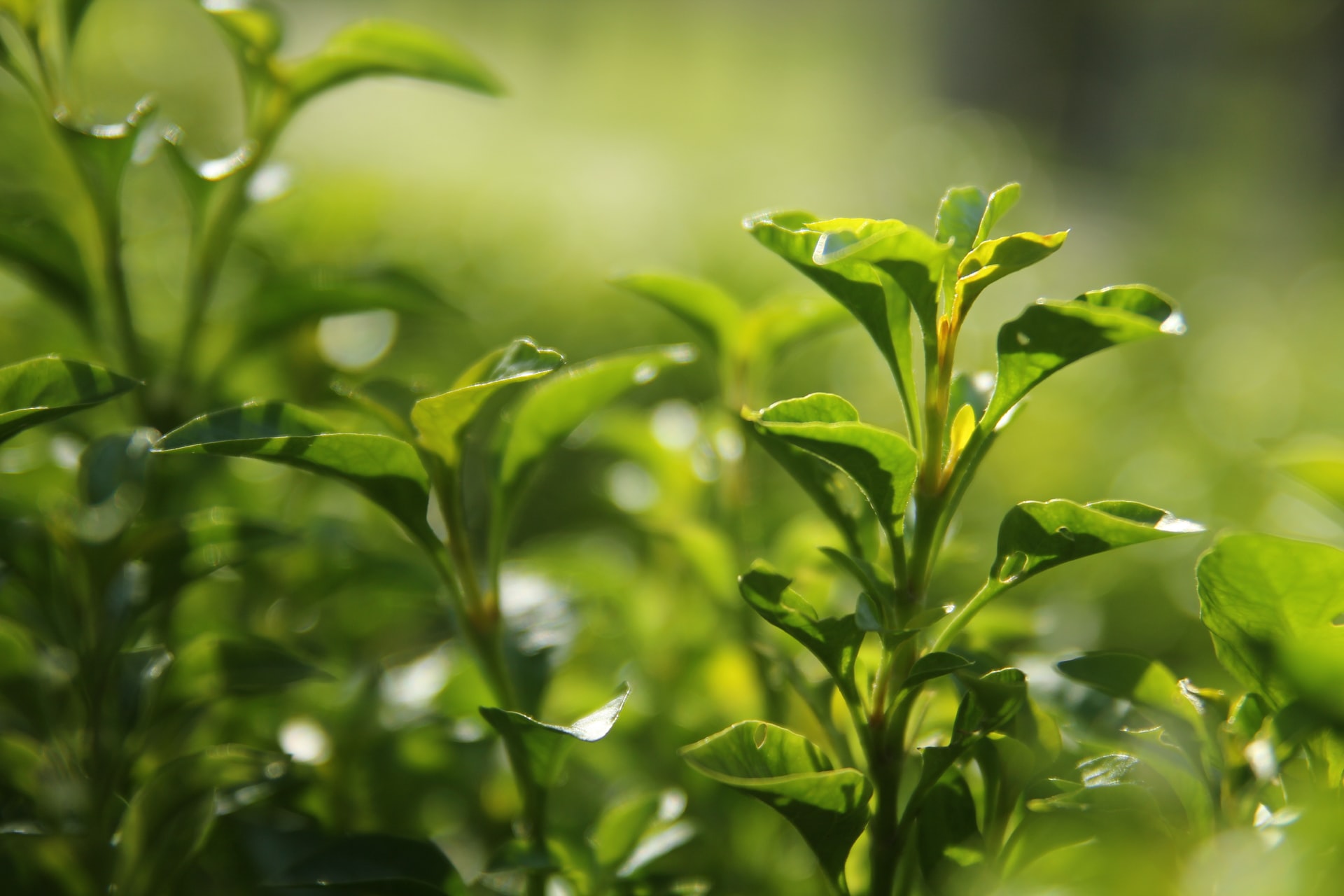
Green tea is extremely popular in the beauty industry worldwide and has remained on the list of most effective cosmetic ingredients for years.
It has been used for daily skin care in Asia for hundreds of years. It is a rich source of nutrients, tones the skin, prevents the appearance of premature signs of aging, stimulates lymph flow and quickly relieves swelling. And this is only the beginning of its positive properties.
Green tea owes its extraordinary action and effectiveness to its rich composition, in which you can find:
The active constituents are polyphenols, which have antioxidant, anti-inflammatory and antibacterial properties. In addition, the plant contains a large amount of caffeine and tannins, which shrink blood vessels and reduce swelling.
Green tea in cosmetics is used in the form of an extract, which is a dark brown solution with a rich tea aroma. Green tea extract has several characteristics that make it considered one of the most effective components in cosmetics, these are:
There are studies confirming that green tea is excellent for soothing irritation in various skin ailments (including eczema, psoriasis and dandruff). It is also helpful in the fight against acne and oily skin.
Moreover, due to its multifaceted nature, it is being studied as a potential cure for skin cancer as well. Not only does it fight free radicals and keep the skin clear, but it also has excellent moisturizing properties and improves the skin’s ability to retain moisture.
Using the plant in shampoos and hair conditioners prevents flaking of the scalp caused by dryness. The tea is an excellent anti-dandruff agent and ensures that the hair is saturated with beneficial substances. It also plays a protective role – protecting against free radicals and UV rays.
Green tea is most often found in anti-cellulite and stretch mark products. It removes toxins, has a draining effect, improves blood microcirculation, strengthens the walls of blood vessels and improves the texture of the skin.
Green tea often appears in cosmetics for problematic skin as the tannin in its composition fights and soothes inflammation. In addition, it is often used in products for sensitive skin, prone to irritation, as well as in anti-aging cosmetics.
Main photo: Timothy Newman/unsplash.com